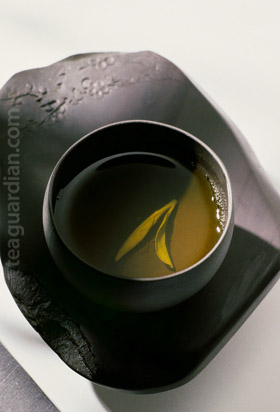Major Health Constituents in Tea
As the “average” earthling is getting fatter, older, and threatened by more diseases, some people do get to live longer, healthier life. The world is getting smarter with science and technology; knowing how to be healthier has never been easier — it is just the determination to do it.
Repeatedly scientists have found tea to be a most potent health aid. The beverage habit with which some civilisations had been able to flourish is now in the focus of research again for its salutary properties.
Since the 18th century, scientists had been studying tea and spoken of its benefits. However, it has been the past twenty years to witness the most intense research in its health constituents and effects. Although breaking up the holistic nature of the leaf of camellia sinensis to discuss the salutary benefits of its individual content matters is a simplistic way of understanding this ancient drink, it is the only way with which the science community is able to conduct experiments and surveys using immediately measurable parameters. Much is still to learn about tea, and there are over 100 bio-active materials in it, but there has been numerous researches supporting the potency of these health constituents:
- Tea polyphenols, including:
- catechins ( aka green tea catechins: EGCG, ECG, etc)
- theaflavins and other polymeric polyphenols
- Quercetin and other flavonoids
- L-Theanine, GABA, and other amino acids
- Statin
- Aromatic volatiles (essential oils)
Of these mentioned, tea catechins have been by far the most studied substance, and we shall write in more details about them in subsequent articles. There are also some other well-known constituents in tea that are quite controversial, they are and will be discussed as well:
- caffeine
- fluorides
- oxalic acids
- environmental contaminants
Overall, evidences indicate that tea is powerful in anti-oxidative, anti-mutagenic and anti-pathogenic effects. Experiments and statistic studies show that tea may help to prevent cancers, heart diseases, bone loss, diabetes, Alzheimer’s disease and slow down aging. It relaxes the mind, facilitates weight-loss, boosts the immune system, and contributes to the health of the digestion track. <More: Health Benefits of Tea>
However, before you rush to drink this beverage as a wonder potion, I have to remind all readers that a natural health drink as such does not render its benefits until it becomes a long time habit. Therefore, it is wise to find a routine to enjoy it first before interpreting it as a health supplement.
There are a lot more different constituents in the leaf that make up the total package of tea. While repeatedly in various cohort studies the conclusions point to better health and better longevity for those who drink tea as a habit, very likely that it is the synergic result of all these different constituents working together. Taking extracts or isolated groups of the substances may render different results.
It is therefore important that tea is not regarded as a medicine or supplement. It is tea the habit that matters.
Tea helps me all along on a daily basis especially in my difficult times, but it has taken me a long time before I know its limitations and capabilities in short term assistance. Developing an affinity with it as an enjoyment is instrumental for my understanding of it and benefiting from it. Those who are in need of immediate medical attention should seek it and not rely solely on tea as the remedy.











